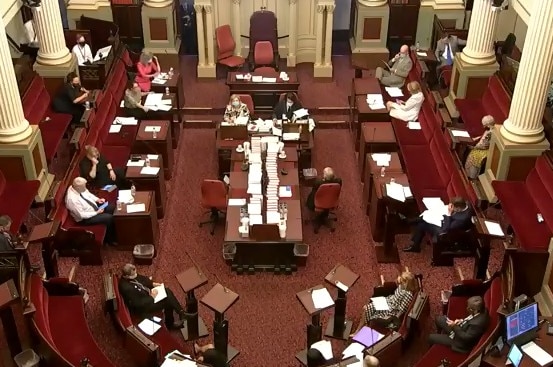Today Marlene Kairouz resigned as Minister for Consumer Affairs. Ms Kairouz was responsible for regulating the licensed portion (as little as 20%) of Victoria’s sex industry. We take a look at her time in the role and the challenges her predecessor will face.
The Minister for Consumer Affairs is responsible for Consumer Affairs Victoria, which licenses and regulates a range of businesses, from builders, tradespeople and real estate agents to brothels. Consumer Affairs Victoria interacts directly with the sex industry by administering Victoria’s notorious licensing system of sex work regulation. This system is despised by both sex workers and sex industry businesses. Years of frustration with this unworkable licensing system is what ultimately led the Victorian government in 2019 to announce a sweeping review of the system.
The Victorian branch of the Labor Party has long been known to have factions and divisions. Recently sacked Minister for Local Government Adem Somyurek was described by Channel 9’s “60 Minutes” as ‘a factional kingpin’. Marlene Kairouz, also caught on camera on the 60 Minutes episode, was close to Mr Somyurek and aligned with him in the right faction of the Labor Party. Adem Somyurek was Marlene Kairouz’s representative in the Upper House, after all. Any questions in the Upper House about sex industry licensing and regulation were directed to him. Now that Mr Somyurek is gone from cabinet and the Labor Party itself, investigations by IBAC and Victoria Police are likely, and the people closest to Mr Somyurek will be in the spotlight.
Marlene Kairouz, whilst gone from the cabinet, retains her membership in the Labor Party and her Lower House seat of Kororoit in Melbourne’s western suburbs. She maintains her innocence of any wrongdoing:
“I look forward to the opportunity to clear my name and am confident any investigative process will do so.”
In resigning of her own volition, Ms Kairouz appears to have approval of the Premier. Of her decision to resign, he said,
“I would refer you to those statements and I believe they have both made the appropriate decision.”
Mr Andrews said he did not ask Ms Kairouz to resign and had not spoken to her prior to her decision to do so.
It’s only fair that MP’s are given the benefit of the doubt, and we wait for any investigative process to unfold before judging individuals. But as sex workers’ rights activists, our core duty is to fight for the human rights, legal rights and interests of sex workers in Victoria. This is part of our Purpose, as outlined in our constitution.
Former Minister Marlene Kairouz, despite her former portfolio responsibility for licensing the sex industry, was not particularly engaged with the sex industry. She was responsible for regulating dozens of other types of businesses; perhaps her focus was on more conventional industries. Victoria’s Sex Work Act places many unreasonable burdons on sex workers, much to the anger of the sex industry as a whole. Section 67 of the Act places a burden on the Minister for Consumer Affairs – it requires the Minister to appoint a Ministerial Advisory Committee relating to the sex industry. The last time this Committee met was 3 March 2014.
In contrast to sex workers who may breach the Sex Work Act, the Minister doesn’t face criminal penalties for failing to comply with the Act. In fact, Ministers don’t face any penalties for failing to comply with section 67.
In 2019, the government quietly passed a consumer law Bill which amended a small number of sections of the Sex Work Act. Both Marlene Kairouz and Adem Somyurek read in the bill (in their respective houses of parliament), with Mr Somyurek answering questions about the sex industry sections of the Bill.
SWLRV identified a lack of consultation with sex workers in the lead up to the bill being read. We also publicly identified unsupported statements made by these two Ministers in 2019 as part of our submission to OVIC regarding freedom of information matters.
The new Minister for Consumer Affairs will face the difficult task of sex industry reform in Victoria. On 30 September Fiona Patten will hand her recommendations regarding reform to the Minister. Whether or not Fiona Patten’s report and recommendations are made public is at the Minister’s discretion. The Minister will also need to decide whether they want to reinstate the Sex Work Ministerial Advisory Committee as required in section 67 of the Sex Work Act.
Sex work decriminalisation is always incredibly complex and the details will be contested, both within and outside of the sex industry. And this will happen during a global coronavirus pandemic, with a shrinking economy, rising unemployment, and a polarised political landscape where voters have record low levels of trust in government, and while government debt rises.
Sex industry reform was never going to be easy.









